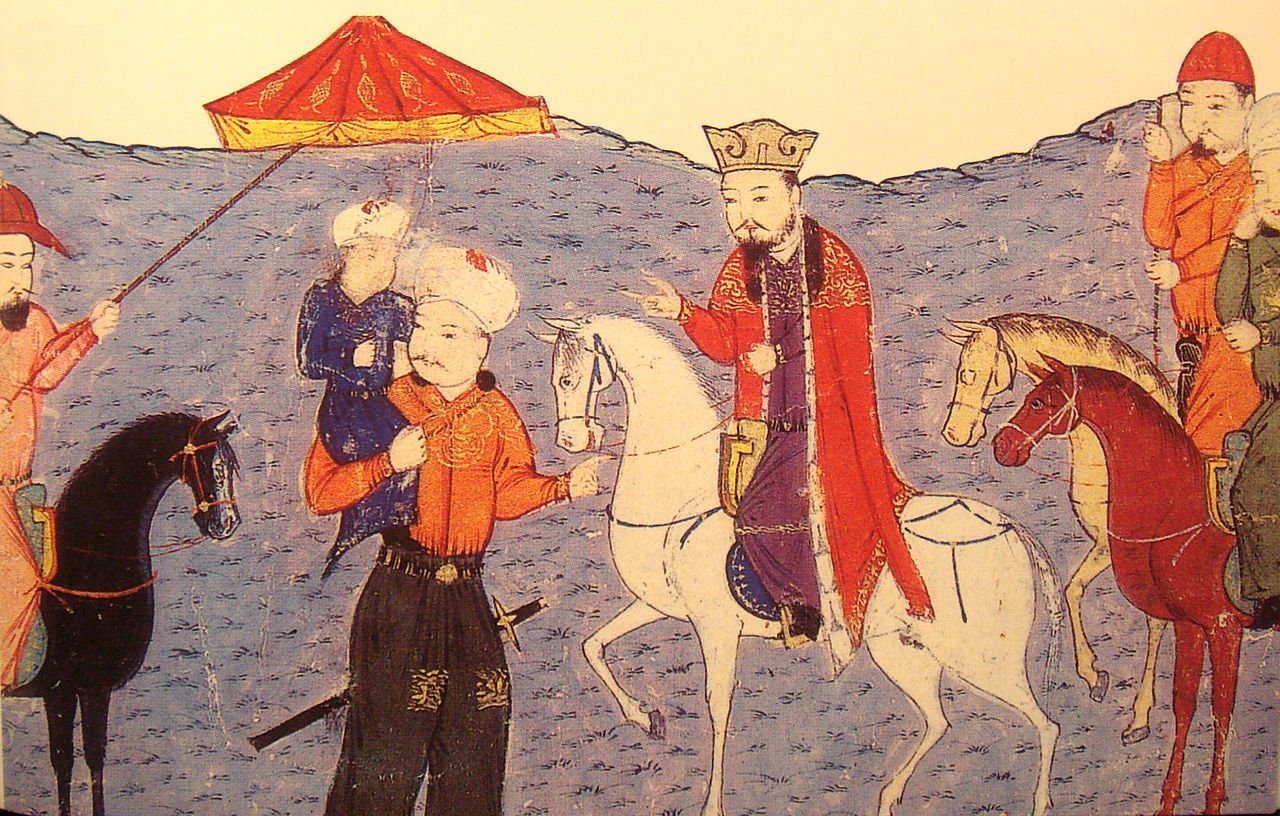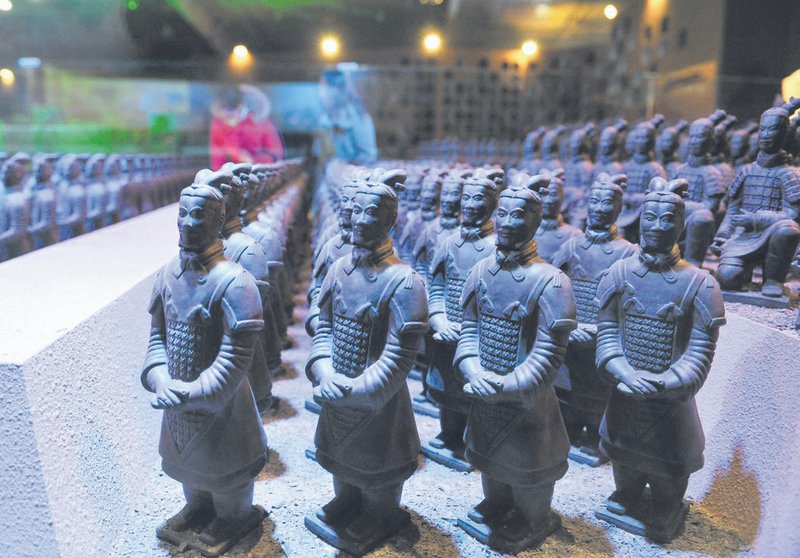Legendary Ancient Emperors
Throughout history, there have been countless rulers who have left an indelible mark on their empires and the world. These legendary ancient emperors were not only powerful leaders but also architects of great empires, whose legacies continue to influence us today. From the vast expanses of China to the grandeur of Rome, and from the enigmatic dynasties of India to the awe-inspiring pharaohs of Egypt, these rulers shaped the course of civilizations. In this article, we will delve into the lives and accomplishments of the top ten legendary ancient emperors of all time.

1. Qin Shi Huang: Founder of China’s Empire
Qin Shi Huang, also known as the First Emperor of China, was a visionary leader who unified the fragmented Chinese states into one empire. He standardized various aspects of Chinese culture, including the language and currency, and initiated the construction of the Great Wall of China. His reign also saw the creation of the Terracotta Army, a vast collection of lifelike statues that stands as a testament to his military might and artistic patronage.
2. Augustus Caesar: Architect of the Roman Empire
One of the most influential figures in Roman history, Augustus Caesar played a pivotal role in transforming the Roman Republic into the mighty Roman Empire. He brought stability to the empire, implemented administrative reforms, and initiated a period of peace and prosperity known as the Pax Romana. Augustus also left a lasting legacy through his architectural projects, such as the construction of magnificent buildings like the Temple of Caesar and the Forum of Augustus.
3. Ashoka the Great: India’s Beloved Emperor
Ashoka the Great, the third ruler of the Maurya dynasty in ancient India, is revered as one of the most compassionate emperors in history. After witnessing the horrors of war, Ashoka embraced Buddhism and dedicated his rule to fostering peace and harmony. He promoted religious tolerance, established hospitals and universities, and built numerous stupas across India. His edicts, inscribed on pillars and rocks, provide valuable insights into his policies and philosophies.
4. Ramses II: The Pharaoh of Egypt’s Greatness
Ramses II, often referred to as Ramses the Great, ruled Egypt during the 19th dynasty, leaving an enduring legacy as one of Egypt’s most celebrated pharaohs. He undertook grand architectural projects, including the construction of Abu Simbel and numerous temples throughout Egypt. Ramses II also achieved military success, notably in the famous Battle of Kadesh against the Hittites. His reign witnessed unparalleled prosperity and marked the zenith of Egypt’s power during the New Kingdom.
5. Genghis Khan: The Fierce Mongol Conqueror
Genghis Khan, the legendary founder and first Great Khan of the Mongol Empire, was a military genius and an exceptional strategist. He united the nomadic tribes of Mongolia and embarked on a relentless campaign of conquest, establishing the largest contiguous empire in history. Genghis Khan’s empire stretched from Asia to Europe, and his military tactics and organizational skills revolutionized warfare. His reign brought stability and prosperity to the vast regions under Mongol control.
6. Charlemagne: Uniter of Western Europe
Charlemagne, also known as Charles the Great, was the king of the Franks and Lombards, and later the Emperor of the Carolingian Empire. He played a crucial role in the formation of Western Europe, uniting various kingdoms and spearheading a cultural and intellectual renaissance known as the Carolingian Renaissance. Charlemagne’s reign witnessed significant advances in education, administration, and the arts, leaving an enduring impact on European civilization.
7. Akbar the Great: India’s Renaissance Emperor
Akbar the Great, the third Mughal Emperor of India, is renowned for his religious tolerance and administrative reforms. He fostered an environment of inclusivity, embracing diverse cultures and religions, and promoting religious dialogue. Akbar’s reign marked a period of harmony and cultural synthesis, and he invited scholars and artists from various backgrounds to his court. His rule witnessed the development of magnificent architecture, exemplified by the majestic Fatehpur Sikri.
8. Emperor Taizong: Tang Dynasty’s Golden Age
Emperor Taizong, also known as Li Shimin, was one of the greatest emperors of the Tang Dynasty in ancient China. He expanded the empire’s territory, implementing military strategies that resulted in significant victories. Taizong’s reign is often referred to as the Golden Age of the Tang Dynasty, characterized by economic prosperity, cultural achievements, and advancements in governance. His wise rule and emphasis on justice continue to inspire Chinese leaders to this day.
9. Peter the Great: Modernizing Russia’s Empire
Peter the Great, the Tsar of Russia from 1682 to 1725, is credited with transforming Russia into a major European power. He modernized the military, reformed the bureaucracy, and launched ambitious projects to westernize Russia. Peter the Great initiated educational reforms, founded the city of Saint Petersburg, and expanded Russia’s territorial reach. His visionary leadership propelled Russia into the ranks of the great European powers.
10. Catherine the Great: Enlightened Empress of Russia
Catherine the Great, Empress of Russia from 1762 to 1796, is remembered as one of the most enlightened rulers in history. She expanded Russia’s territory, fostered cultural and intellectual advancements, and implemented reforms in education, law, and governance. Catherine the Great’s patronage of the arts and her efforts to modernize Russia propelled the country towards becoming a major European power.
These legendary ancient emperors showcased exceptional leadership qualities, leaving a lasting impact on their empires and the world at large. Their contributions spanned various fields, including politics, military strategy, governance, art, and culture, shaping the course of history. Through their accomplishments, they not only solidified their places in history but also inspired future generations of leaders to strive for greatness. As we continue to study and appreciate their legacies, we gain a deeper understanding of the complexities of ancient civilizations and the remarkable individuals who shaped them.


